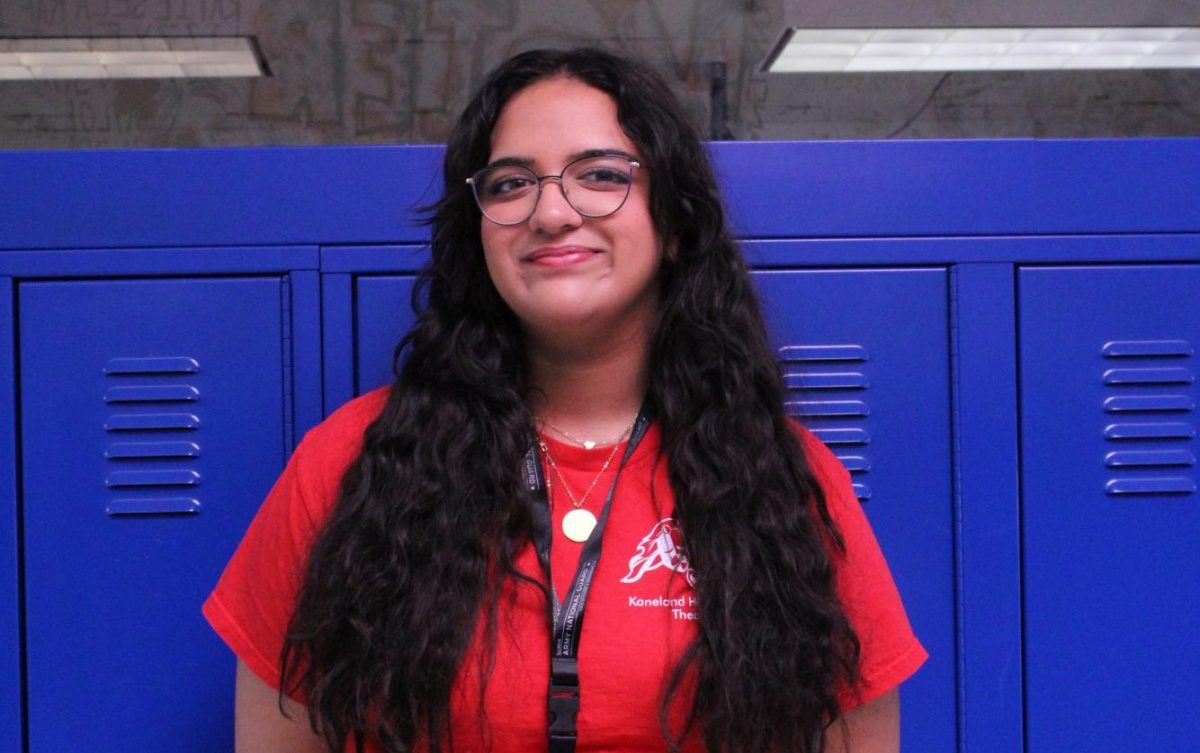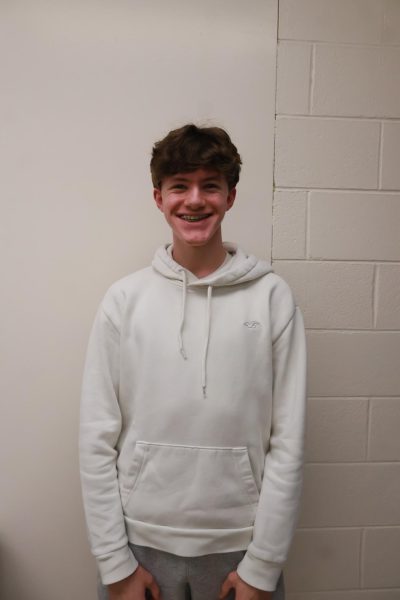An American home is filled with thousands of things: utensils, furniture, electronics and all sorts of supplies. However, hidden amongst the clutter that fills a home are books. Hundreds of books. Tens of thousands of pages. Pitch black ink transforms into beautiful clusters of shapes that offer insight into a world beyond our own. Each page adds up to a story and each story has infinite meanings. How often do people in those homes – particularly teenagers in high school – uncover one of these stories and delve into the intricacy, uniqueness, wonder and magic of one?
Most of the time, the reason for the neglect of reading amongst high school students is an addiction to social media or various other forms of technological entertainment. Most students find it easier to pick up their phone and access entertainment with a few quick taps. According to research released from the American Psychological Association (APA), in 2023 it was recorded that less than 20% of teens in the United States read for pleasure every day, whereas more than 80% use social media every day.
In the Kaneland High School (KHS) library, shelves upon shelves of books sit waiting to be opened. Worlds waiting to be discovered. The books sit in silence as they are constantly passed by students with phones in their hands. It seems impossible to break the habit of scrolling on social media and replace it with flipping the crisp pages of a book. KHS library director Hope Paskus recognizes the captivating effect social media has on high school students.
“Social media and things like that are programmed to want to keep our attention,” Paskus said. Social media is oftentimes a more convenient source of entertainment as well. “It’s easier to [use social media] than it is to read a book,” Paskus said.
Books also take a lot of time to read, requiring more attention, focus and dedication. Reading for an hour may not give the same amount of entertainment that scrolling on social media for an hour would.
“I don’t like [reading] because sometimes it just feels tedious,” senior Idrees Ali said. Ali has also noted that reading takes a lot of time and can get uninteresting really quickly.
Paskus has come to realize this as well.
“We’re so involved with social media, we don’t like to get bored anymore,” Paskus said. “Being bored seems bad.”
An addiction to social media is not the only reason for the lack of reading. Sometimes students just have no time available to them. High school is a difficult time in any student’s life, and the pile of work that they receive from day to day can interfere with hobbies and interests.
“They’re busy and there’s other things they would prefer to do,” Paskus said. For some people, their day doesn’t end when the final bell rings. They have extracurriculars, jobs, volunteering and more.
Since reading books can be slow, an alternative many choose is watching movie adaptations of books. Some prefer the movies while others prefer the books. Ali remembers some films that have made him wish he read the books first, one of which was Dune by Frank Herbert. Ali held the book in his hands, excited to read a fantastical story that lay underneath the beautiful book cover. He eagerly flipped through the beginning pages of the book, excited for the twists and turns that were to unfold. With each page flip, however, he began to slowly lose interest in the book, like a flower wilting away. The story was getting nowhere, and the anticipation seemed to be for nothing. With disappointment, Ali cast the book aside, doubtful if he’ll ever return to that story. He later realized that he could move through a much quicker version of entertainment: the movie. Why spend weeks trying to read through a long and boring book when he could just watch the story unfold with a fun movie night? It was the perfect idea.
“I guess for some reason I lost that motivation [to read],” Ali said. “And then I ended up watching the movie.” Ali’s love for the movie, however, made him reflect on how he wishes he could’ve finished the book first. “Every piece of art could have probably been more appreciated if I actually finished reading Dune before watching the movie,” Ali said.
Sophomore Addison Schedin has loved reading for as long as she can remember. She found her passion for reading in third grade when she read J.K. Rowling’s famous fantasy series Harry Potter for the first time. She found more enjoyment and challenge in reading higher level books at a younger age compared to other books that her peers were reading. The unique, memorable, magical and intricate storyline of the Harry Potter series opened Schedin’s eyes to a whole other world of possibilities. A world found between the lines of a page. Although she loves to read in her free time, high school has restricted her from reading as much as she’d like to. Schedin constantly comes home from school overwhelmed by the homework she has for her rigorous courses. Papers upon papers stacking up with a daunting due date looming overhead, and a computer with multiple tabs of assignments open, it seems as though her homework will never end. Now, Schedin has less time to enjoy reading a book since the responsibilities of school are constantly nagging at her.
“I try to [read for] two hours a day, but homework makes it so it’s usually like 20 [minutes] on weekdays,” Schedin said. Despite the loss in free time she’s able to spend on reading, Schedin still feels the impacts reading has on her life. “I feel like it helps with vocabulary,” Schedin said.
Vocabulary is one among many of the benefits that reading brings. Many people who read in their free time say that it helps them decompress after a long day, reduce their stress and gain empathy.
Lots of people who enjoy reading have said that they are able to gain perspective on human experiences that they might not otherwise know about.
“When I’m reading, I am able to see other points of views and understand more about myself by the way I relate to how characters make decisions,” Paskus said.
Before humanity experienced a tsunami of technological advancements, entertainment came mainly in the form of books. Stories written by others that allowed the reader to fill their head with imagination, ideas, stories and more. According to a Discover Magazine article written by journalist Megan Schmidt, reading is a great way to increase empathy. Schmidt explains that a reader can travel into another person’s mind, experiencing their thoughts and perspectives. She mentions how different characters go through different life experiences, so a reader can get insight on different life events that happen to others, and their interactions with people in the real world can change as a result of this.
Along with empathy, reading is a great way to lower stress and anxiety levels, as well as unwind after a long day. KHS English teacher Rachel Giles-Bachman has noticed the impact that reading every day has had on her life.
“I [read] almost for mental health stuff,” Giles-Bachman said. “It’s how I decompress after work.”
We all have bad days from time to time. Sometimes it can be difficult to deal with the pounding sensation that the day’s events may have on you. Something may be poking at your brain with a sharp stick persistently reminding you of something you’re desperate to brush off and forget. Sometimes anxiety can get in the way of your life and enshroud you in what feels like a total darkness. It can be hard to find a way out of that cloud of darkness. Giles-Bachman has found a way to deal with anxiety.
“I learned I had anxiety, like, in the middle of the pandemic, and the only thing that chilled me out was reading,” Giles-Bachman said.
Sitting down and reading a nice book is a very calming and relaxing thing that many book lovers can relate to. Paskus has also found how reading benefits her mental health.
“I know that [reading] helps me reduce stress and anxiety,” Paskus said. “It makes me feel more relaxed sometimes.”
There’s more to the benefits of reading than just mental health improvements. Reading is often said to have an impact on your lifestyle. One person who found out early in her life that reading books forever changed the way she will live is KHS English department chair Kimberly Reese.
Reese recalls finding enjoyment in reading books from a very young age. After learning how to read chapter books around third grade, Reese found a whole new passion for reading. Books with such intricate and mesmerizing worlds, characters and stories drew Reese in. Reading allowed Reese to experience other worlds that she’d never be able to experience otherwise. With this newfound love for reading, Reese would walk from her house to her local library to check out anywhere from one to 10 books at a time. She’d walk home eager to delve into a world she held at her fingertips. Characters with their own conflicts, relationships and perspectives lay just beneath the covers of the books.
“I think reading enriches your life,” Reese said. “I can’t imagine a life where I wasn’t able to read when I was younger.”
Reading not only has general benefits, but reading in your free time could aid you in school – particularly in the English subject.
“Reading really helps you to become a better communicator because hopefully you’re reading stories or nonfiction books that are written by people who are better communicators,” Reese said. “So you learn to be a better communicator [and] you learn how to put words together in ways that you might not think of yourself.”
Giles-Bachman has also found a correlation between reading and a student’s success in a high school English class, which she didn’t find until she began teaching.
“If you don’t read, it’s hard for you to know good writing, because when you read you end up inadvertently recognizing patterns in writing,” Giles-Bachman said. “If you don’t know how language functions because you aren’t used to written language, it’s really hard for you to actually write well.”
Additionally, many readers have said that reading in their free time is a great way to increase their vocabulary. Reese has also recognized this connection.
“[Reading is] where we improve our vocabulary,” Reese said. “As you’re exposed to words and you’re exposed to them in different contexts, you learn them, and then you begin to use them.”
Introducing a new habit is hard, though, especially when your life is already so full. With a daunting amount of schoolwork piled on top of stressful and oftentimes intensive extracurriculars, is it even possible to begin reading again? Although it may be hard, there are many ways to get back into the habit of reading in your free time.
One of the most common things people suggest is to remove access to screens when trying to get back into reading.
“Taking away that access [to phones], which I know is not popular, can help because they don’t have it, so you’ve got to do something else,” Paskus said. Putting your phone somewhere else when you are designating time to read is something that many find helpful. Schedin has found that reading has impacted the time she spends on her phone.
“It gives me more stuff to do in my free time than just looking at my phone,” Schedin said.
Putting your phone in another room may not be as easy for some as it is for others, however. Luckily, there is a way to read books for those who want to spend more time reading but still use technology: audiobooks.
“I think audiobooks are a really good way to [read], especially with how often you guys consume media,” Giles-Bachman said. As an English teacher, she has had experience with students wanting to read via audiobooks rather than a physical copy. She promotes the idea as long as it supports the learning needs of the students.
“As long as you can do that and it sticks in your brain, I think that that’s a great way to do that too,” Giles-Bachman said.
Technology is not the only thing holding back students from reading. Sometimes the students just haven’t found the type of books they enjoy. The books that schools make students read may not appeal to everyone, and many people who love reading can agree.
“I didn’t love reading what I was told to read in school,” Giles-Bachman said. She remembers many times in school when she was told to read certain books that she disliked, it took the joy out of reading. Despite that, she eventually found her love for reading again through taking up reading as a hobby during the pandemic and finding a group of people to read with.
Reese has also recognized how students don’t gravitate towards reading due to past experiences of stories they may have disliked.
“They haven’t found the right book for them [or] the right genre for them,” Reese said. “And if they find something that is of interest to them, I think that will begin to open the door.”
Reading is a hobby that can come naturally, but for some students they never will develop a passion for it. Sometimes students just find reading to be tedious or repetitive, and their feelings on it will never change no matter how many books they read. However, for students who could enjoy it and just haven’t found the right books, it’s possible to develop a love for it. It may take a while to find that passion, however it is definitely possible.
“You don’t have to force yourself to read certain things,” Reese said. “Start where your interests lie, or where your passions lie.”







